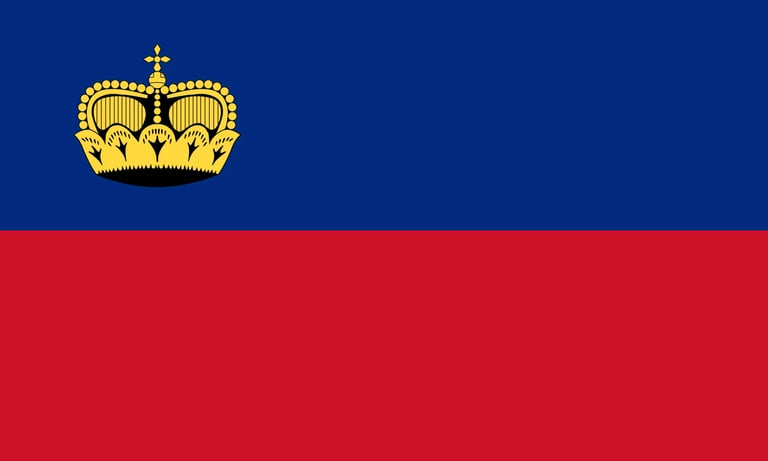Liechtenstein
From Wikipedia


The Principality of Liechtenstein is a doubly landlocked German-speaking microstate in the Central European Alps, between Austria in the east and north and Switzerland in the west and south. Liechtenstein is a semi-constitutional monarchy headed by the prince of Liechtenstein of the House of Liechtenstein, currently led by Hans-Adam II. It is Europe's fourth-smallest country, with an area of just over 160 square kilometres (62 square miles) and a population of 40,023. It is the world's smallest country to border two countries, and is one of the few countries with no debt.
Liechtenstein is divided into 11 municipalities. Its capital is Vaduz, and its largest municipality is Schaan. It is a member of the United Nations, the European Free Trade Association, and the Council of Europe. It is not a member state of the European Union, but it participates in both the Schengen Area and the European Economic Area. It has a customs union and a monetary union with Switzerland, with its usage of the Swiss franc. Politically, a constitutional referendum in 2003 granted the monarch greater powers, after he threatened to leave the country should the referendum fail. These powers include being able to dismiss the government, nominate judges and veto legislation.
Economically, Liechtenstein has one of the highest gross domestic products per person in the world when adjusted for purchasing power parity. The country has a strong financial sector centred in Vaduz. It was once known as a billionaire tax haven, culminating in a tax affair in 2008, but the principality has since made significant efforts to shed this reputation. An Alpine country, Liechtenstein is mountainous, making it a winter sport destination.
Nassouh GSPI
Assessing global strength through various metrics.
contact us
gspi@nassouh.com
© 2025. Nassouh, All rights reserved.
